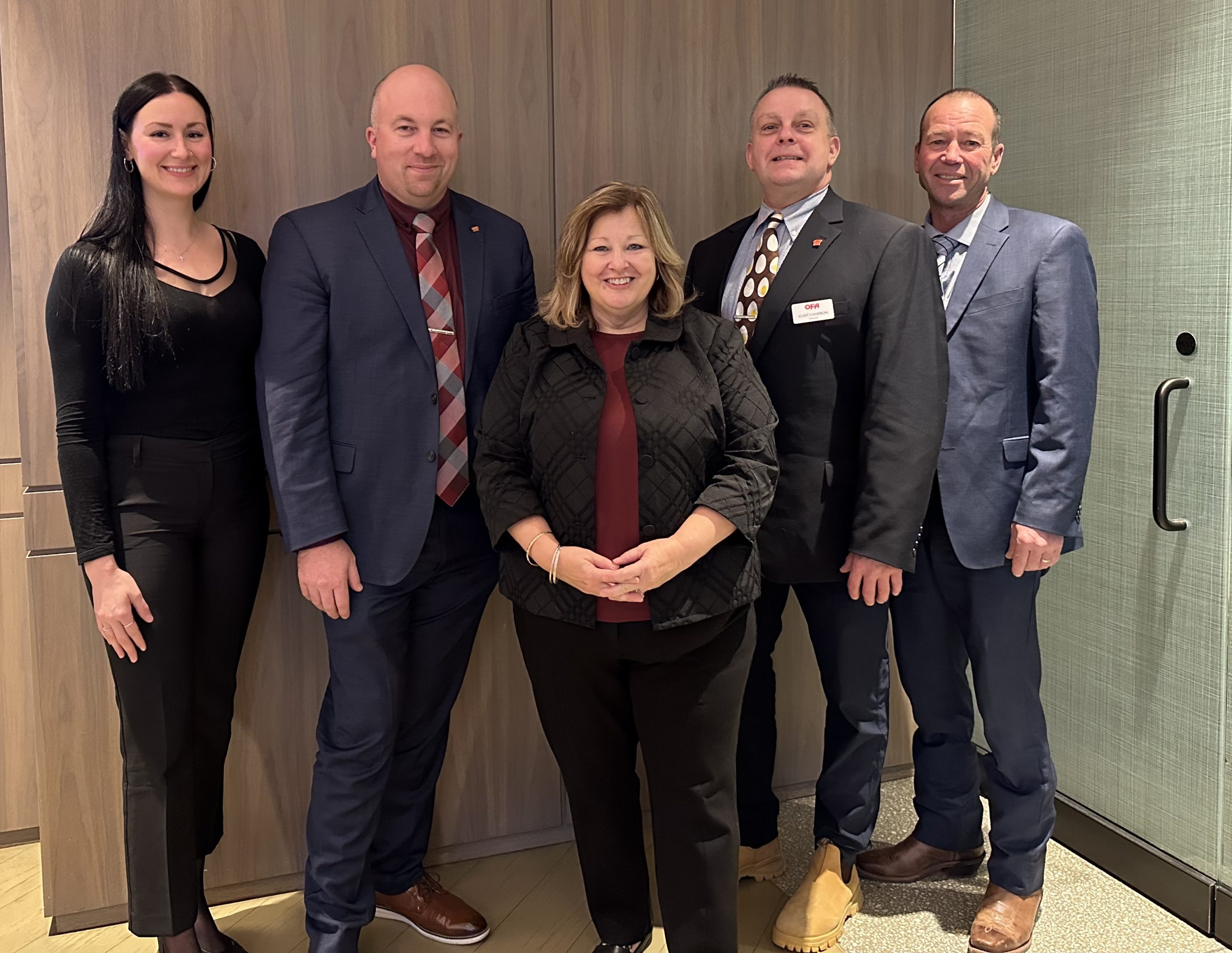ONTARIO – Strengthening ties between rural municipal leaders and the farm community was on the agenda last week as representatives from the Ontario Federation of Agriculture took part in the annual Rural Ontario Municipal Association (ROMA) conference.
Rural infrastructure investments, land-use planning, affordable housing and economic development were top-of-mind as issues that are priorities for Ontario’s farmers and rural municipalities alike.
OFA has been attending this conference for many years to build relationships with rural leaders and help raise awareness of the issues faced by our sector and how we can work together to find common solutions.
After all, Ontario’s agri-food sector is a major driver of the provincial economy, contributing more than $50 billion in economic activity and supporting 871,000 jobs – that’s about 11 percent of the provincial workforce.
I’m part of my family’s farm business in Eastern Ontario, work as a Certified Crop Advisor for a local agricultural business and sit on the OFA’s board as a director. This was my first year participating at ROMA, and it was a wonderful experience to learn more about municipal affairs and the challenges and opportunities faced by rural communities.
The workshops and panels focused on topics like healthcare, schools and transportation infrastructure, all issues that are also important to the farm community.
Agriculture, however, was also an important part of discussions, including how municipalities can support and plan for economic development such as agritourism and on-farm agri-food business opportunities.
As a first-time participant at the event, I was encouraged by the number of municipal leaders I met who are keen to learn more about agriculture and what they can do to better support the farm businesses in their communities.
What also struck me were the strong parallels between municipal priorities and what matters to farmers.
Improving rural infrastructure and services such as transportation, affordable energy, and highspeed internet, as well as access to social services such as schools, health care and community centres are vital to attracting and keeping businesses, families and jobs in rural Ontario.
Growing our agri-food sector means protecting the agricultural and environmental lands we depend on for local food production while also looking for affordable housing solutions by committing to responsible long-term land-use planning and smart growth in our urban centres.
And finally, increasing local food and agritourism opportunities help build economic development, support jobs and contribute to healthy communities.
The ROMA conference also saw the announcement of a new Rural Economic Development Strategy by Minister of Rural Affairs Lisa Thompson.
Some of my fellow OFA board members participated in the consultations and roundtables that led to this new strategy, and the OFA also provided written comments to the process, including priorities around infrastructure investment, farmland preservation, economic and business development, growing the rural workforce, and diversifying rural economies.
We appreciate that the government has included many of these priorities in its new strategy.
In particular, one of our key asks was for increased funding for the Rural Economic Development program, and it was terrific to see the government announce it will be doubling funding for the program – which is being renamed Rural Ontario Development Program – from $5 million to $10 million a year for the next two years.
The government also announced $18 million of new funding for the Agricultural Drainage Infrastructure Program for municipalities which will help keep our farmland productive, and that municipalities are now able to apply for funding for projects related to improving outdated water, wastewater and stormwater facilities.
Rural communities and the agri-food sector are strongly inter-connected, and what is good for rural Ontario is good for agriculture. Events like ROMA are a valuable opportunity for us to share our messages. They also, however, give us a better understanding of the municipal perspective and identify new ways of how we can work together towards a common goal of Farms and Food Forever.
* * *
Vanessa Renaud is an Ontario Federation of Agriculture director.



